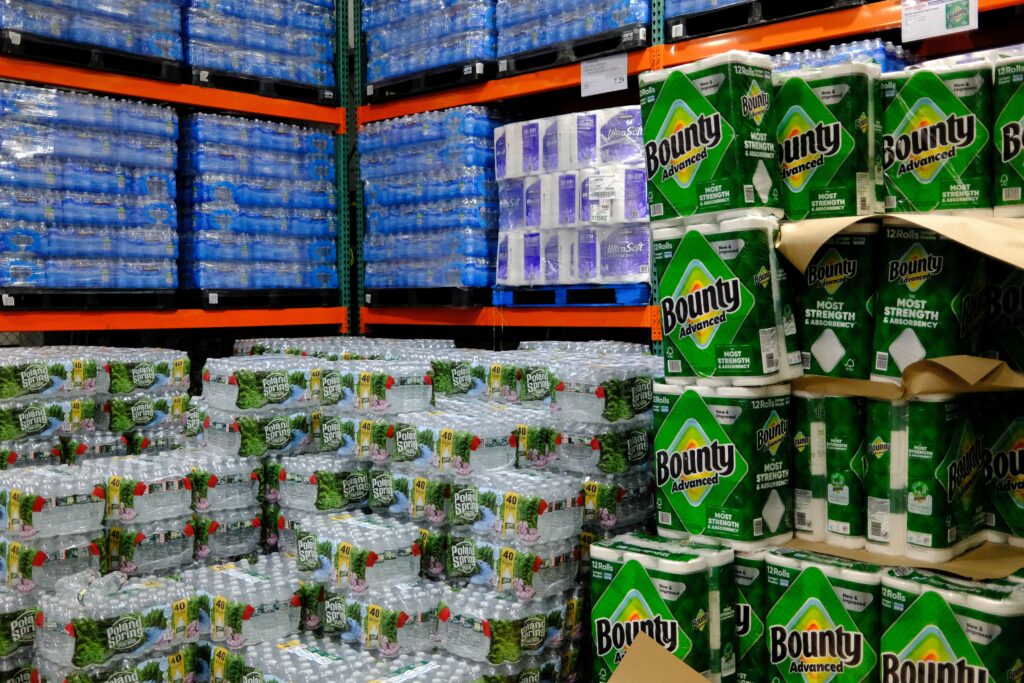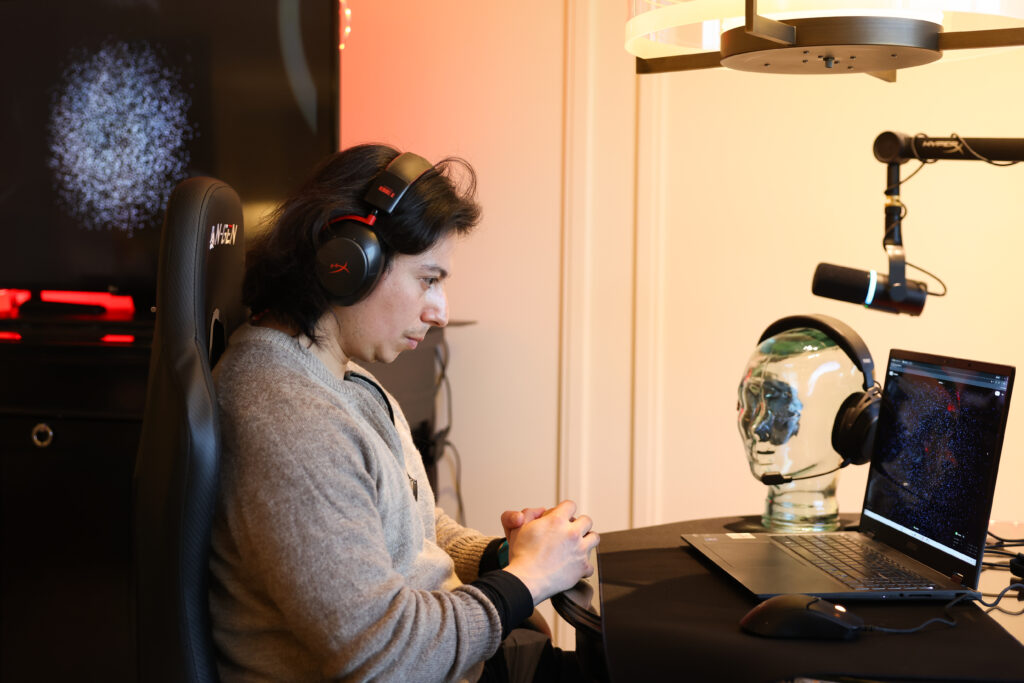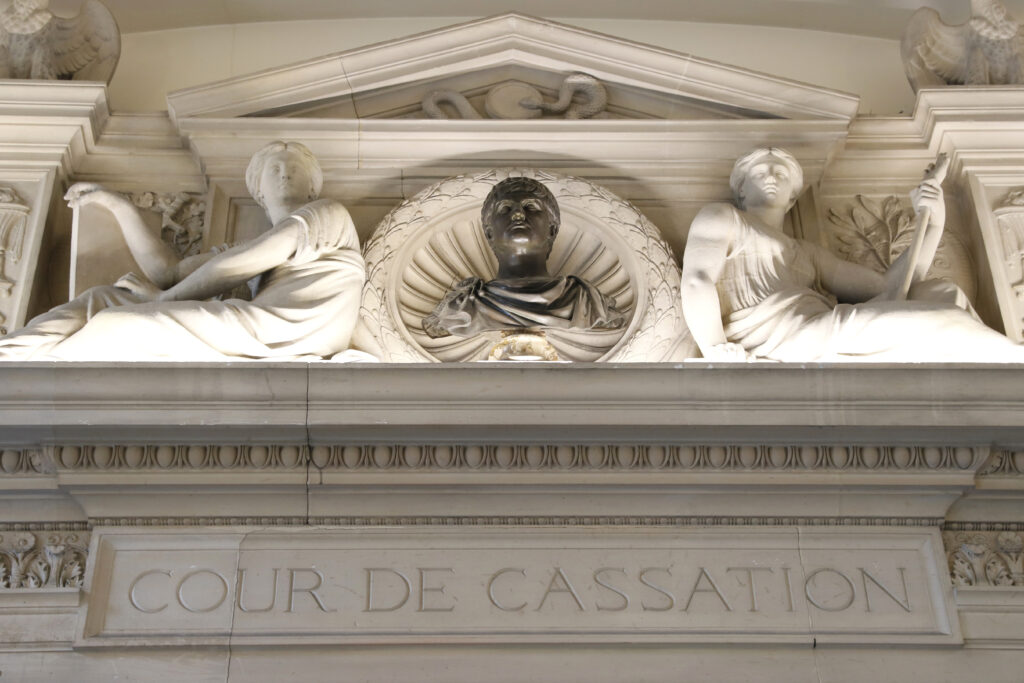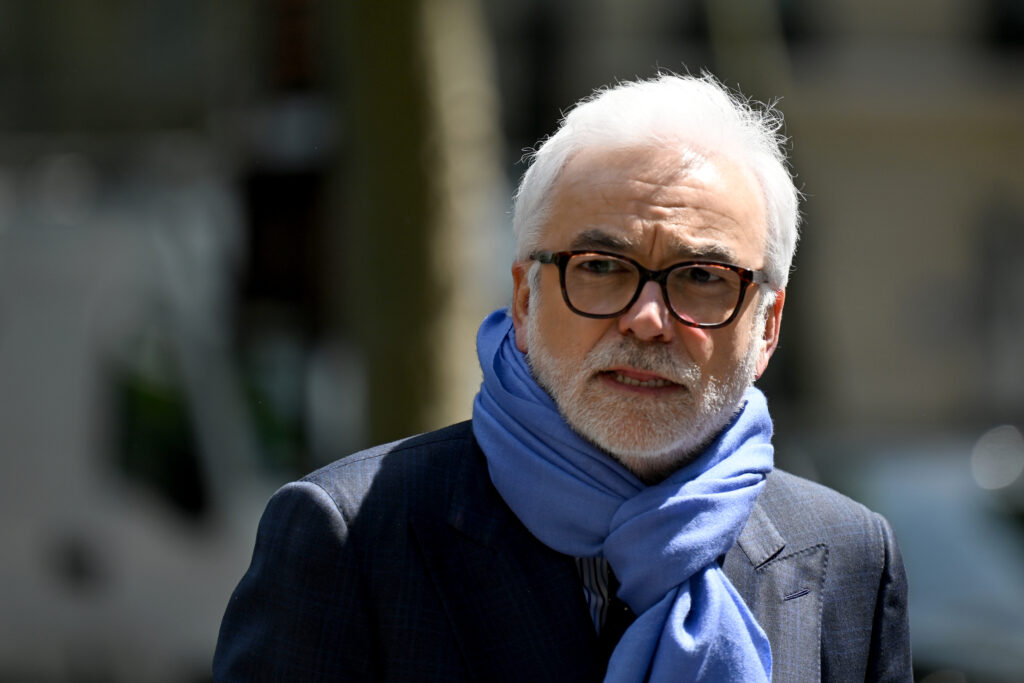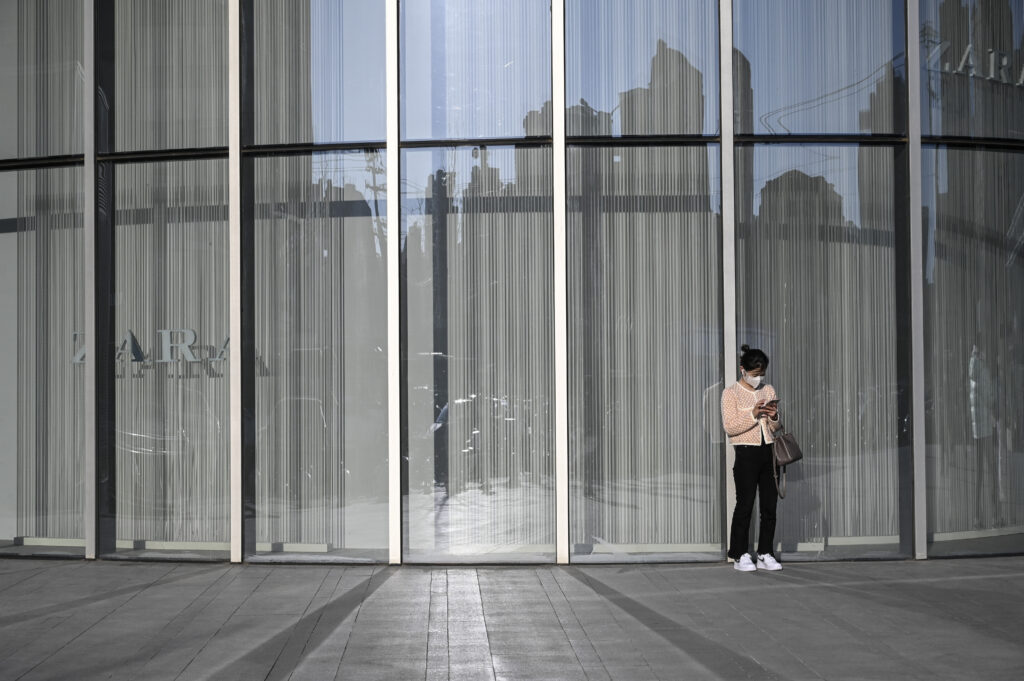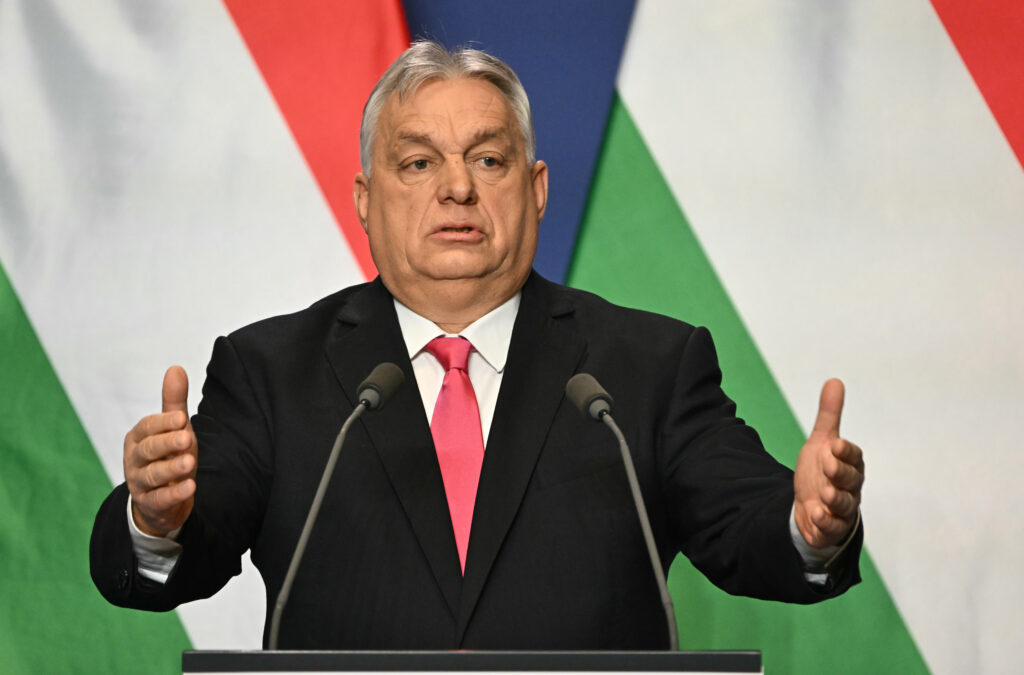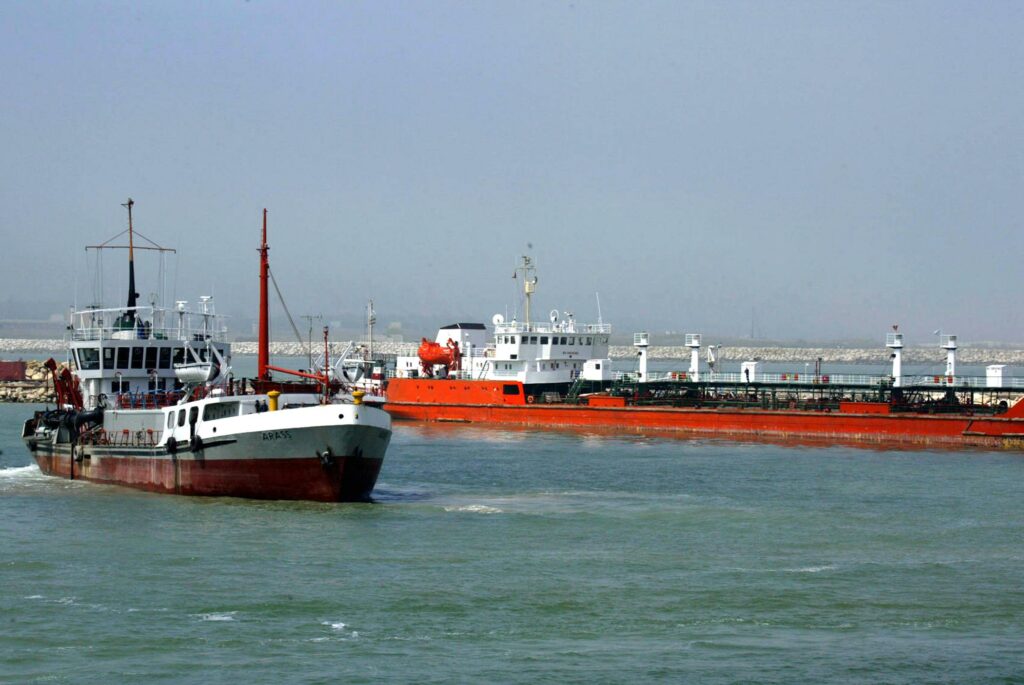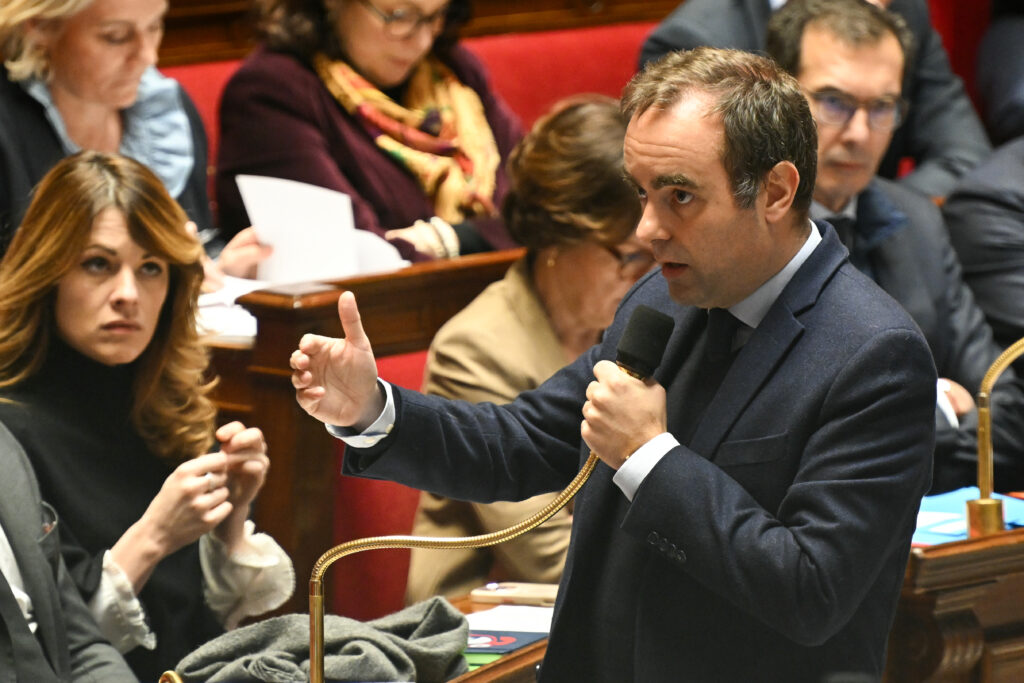US consumer inflation holds steady as affordability worries linger
US consumer inflation was steady in December as analysts expected, government data showed Tuesday, capping a year in which affordability worries flared while President Donald Trump’s tariffs weighed on the economy.The consumer price index (CPI), a key inflation gauge, rose 2.7 percent last month from a year ago, the same rate as in November, said the Department of Labor.On a month-on-month basis, CPI was up 0.3 percent, also unchanged from the rate in September. This was the most recent month where comparable figures were available, due to a government shutdown that hampered data collection.Trump was quick to laud the latest figures, saying that inflation numbers were “low.””That means that Jerome ‘Too Late’ Powell should cut interest rates, MEANINGFULLY!!!” the president wrote on his Truth Social platform, renewing pressure on the central bank chief to slash rates more aggressively.While prices have not surged in the final months of 2025, inflation crept up during the year as Trump imposed wave after wave of tariffs on US imports, hitting goods from virtually all trading partners.But the Trump administration has, in recent months, widened a slate of exemptions to cover key agriculture products and other items.Businesses have reported higher costs, although many have tried to soften the blow by stocking up on inventory ahead of planned hikes in duties to avoid passing on the full additional costs to consumers.In December, the index for housing was the biggest factor behind the monthly inflation uptick, Tuesday’s report said.- ‘Frustration with economy’ -Stripping out the volatile food and energy segments, core CPI rose 2.6 percent from a year ago.This was lower than the 2.8 percent expected by surveys of economists conducted by Dow Jones Newswires and The Wall Street Journal.But food costs were up 3.1 percent from a year ago in December, and energy costs were 2.3 percent higher, the report said.”Five of the six major grocery store food group indexes increased in December,” the department added, underscoring the cost pressures that Americans have been feeling.”There’s still a lot of frustration that food and utility prices are up so much in the past year. These are costs Americans have to pay,” said Navy Federal Credit Union chief economist Heather Long.She noted that besides the cost increase for food, electricity prices were up nearly seven percent in the past year, and the price of natural gas was up 11 percent.”Rising costs for these core items in people’s budgets helps explain the ongoing frustration with the economy, even as inflation overall appears to be moderating,” Long said in a note.- Rate cuts, uncertainty -The steady inflation figure is still some way from the Federal Reserve’s longer-term target of two percent.But Sam Stovall of CFRA Research noted that the lack of an uptick suggests that the US central bank has room to lower interest rates in the coming months.”The Fed could cut rates,” he said, although probably not at its upcoming meeting in January.The Fed has a dual mandate of maintaining stable prices and maximum employment as it mulls the path of interest rates.Stubborn inflation could make it tougher for policymakers to lower rates further to boost the economy as the employment market cools.”But with inflation fears fading, officials will feel freer to respond to downside risks to the labor market, should conditions deteriorate,” said Michael Pearce, chief US economist at Oxford Economics.For now, Pearce said, “we expect officials are happy to remain on extended pause, as they wait and see the impact of their recent string of rate cuts.”EY-Parthenon chief economist Gregory Daco expects the Fed will wait until June at least to resume lowering rates.”Importantly, the recent Department of Justice grand jury investigation involving the Fed and Chair Powell is likely to inject additional uncertainty into the policy process,” Daco said.
Alzheimer, Parkinson, cancer… l’IA annonce l’ère de l’auto-dépistage
Un casque audio qui repère des signes précoces d’Alzheimer, une application pour sonder des traces de cancer grâce à l’iris de l’oeil. Au-delà des montres ou bagues connectées, l’intelligence artificielle (IA) veut généraliser l’autodépistage des maladies.”La médecine préventive ne marche pas aujourd’hui parce que vous ne voulez pas aller chez le médecin tout le temps …
Alzheimer, Parkinson, cancer… l’IA annonce l’ère de l’auto-dépistage Read More »
Secret des sources des journalistes dans les lieux publics: la Cour de cassation appelée à trancher
La Cour de cassation a examiné mardi pour la première fois la question de la protection spécifique accordée au secret des sources des journalistes lorsqu’ils font l’objet d’une perquisition en dehors de chez eux ou de leur rédaction, un dossier scruté par la profession.La plus haute juridiction judiciaire française rendra le 17 mars un arrêt …
LFI veut saisir l’Arcom et la justice après des propos de Pascal Praud sur les agriculteurs “blancs”
Le coordinateur de La France insoumise Manuel Bompard a annoncé mardi que LFI allait saisir l’Arcom et la justice après des propos de l’animateur Pascal Praud sur CNews concernant les policiers pour lesquels il ne serait “pas facile” de s’interposer face à des agriculteurs “blancs”.Pour sa part, M. Praud a assuré que la séquence avait …
“T’es mort?”: l’appli chinoise pour personnes seules qui fait le buzz
“T’es mort?”: cette nouvelle application au nom provocateur, qui permet d’envoyer des alertes si son utilisateur ne se signale pas régulièrement, cartonne en Chine, où les personnes vivant en solo sont de plus en plus nombreuses.Les Chinois se mariaient autrefois en moyenne au début de la vingtaine, et les personnes âgées vivaient souvent jusqu’à leur …
“T’es mort?”: l’appli chinoise pour personnes seules qui fait le buzz Read More »
Les Hongrois appelés à voter le 12 avril pour des élections où Orban est donné en difficulté
Les Hongrois sont appelés aux urnes le 12 avril pour élire leur nouvelle assemblée, avec la possibilité d’une défaite du Premier ministre nationaliste Viktor Orban, au pouvoir depuis 2010.A la tête du pays depuis près de 16 ans, M. Orban est à la traîne dans les sondages indépendants depuis des mois sur fond de stagnation …
Trump’s Iran tariff threat pushes oil price higher
The price of oil rose on Tuesday after US President Donald Trump announced steep tariffs on anyone trading with Iran, sparking expectations the threat will restrict supplies of crude.”Supply concerns remained front and centre after President Trump announced new tariffs on US imports from any countries trading with Iran, raising fears of further disruptions from one of OPEC’s largest producers,” said David Morrison, senior market analyst at Trade Nation, a financial services provider.”Iran’s domestic unrest, alongside escalating rhetoric around potential military action, added to the geopolitical premium,” he said.Trump said in a social media post on Monday that the new levies would “immediately” hit the Islamic republic’s trading partners who also do business with the United States.The move “is likely to hit its biggest trading partners like China”, said Victoria Scholar, head of investment at Interactive Investor.European stock markets were mixed following a US consumer price reading that suggested inflation is easing — although not by enough to prompt the Federal Reserve bank into an early rate easing.”We’re beginning to see inflation retreat,” said Bret Kenwell, US investment analyst at the eToro trading platform.”December’s in-line CPI report may not be enough to move the Fed’s view toward a more aggressive rate-cutting policy. But as a cooling jobs environment persists, inflation may not be as much of a constraint when it comes to interest rate policy,” he said.New York stocks started the day in mildly negative territory, just shy of Monday’s record levels.Investors meanwhile mostly shrugged off worries about a US criminal probe of the Federal Reserve that comes amid heavy Trump pressure on Fed chair Jerome Powell to cut rates aggressively.The heads of major central banks threw their support behind the Fed and Powell on Tuesday, saying in a joint statement that it was “critical to preserve” their independence.Earlier Tuesday, Tokyo equities closed at a record high and the yen fell on speculation over a snap election in Japan which would allow Prime Minister Sanae Takaichi to capitalise on strong poll numbers.Takaichi was appointed Japan’s first woman prime minister in October and her cabinet enjoys an approval rating of around 70 percent.Seoul climbed 1.5 percent after South Korean chip giant SK hynix said it would spend 19 trillion won ($12.9 billion) building an advanced chip packaging plant, as the firm rides the global AI boom.- Key figures at around 1440 GMT -Brent North Sea Crude: UP 1.3 percent at $64.73 per barrelWest Texas Intermediate: UP 1.3 percent at $60.28 per barrelNew York – Dow: DOWN 0.2 percent at 49,503.60 pointsLondon – FTSE 100: DOWN 0.1 percent at 10,132.19Paris – CAC 40: DOWN 0.1 percent at 8,350.44Frankfurt – DAX: UP 0.3 percent at 25,482.08Hong Kong – Hang Seng Index: UP 0.9 percent at 26,848.47 (close)Shanghai – Composite: DOWN 0.6 percent at 4,138.76 (close)Tokyo – Nikkei 225: UP 3.1 percent at 53,549.16 (close)Euro/dollar: UP at $1.1668 from $1.1666 on MondayPound/dollar: UP at $1.3471 from $1.3466Dollar/yen: UP at 158.89 yen from 158.17 yenEuro/pound: DOWN at 86.61 pence from 86.63 pence
Passer le budget par 49.3 ou ordonnance: Lecornu prend son risque
Un budget, mais à quel prix ? Faire passer le budget par 49.3 ou par ordonnances présente pour Sébastien Lecornu plusieurs avantages dont celui d’incarner une forme de stabilité, s’il n’est pas censuré à l’issue, mais aussi des risques pour son avenir et son image.Le Premier ministre n’a pas encore tranché de quelle manière il dotera la France d’un budget, qui a peu de chances d’être adopté par vote. A ce stade “rien n’est exclu” entre les articles 49.3 et 47 (ordonnances) de la Constitution, selon la porte-parole du gouvernement Maud Bregeon.S’il n’est pas ensuite censuré, “c’est le nirvana, il deviendra immortel, c’est comme s’il entrait à l’Académie française”, prédit un responsable LR.Le Premier ministre s’offrirait alors un ballon d’oxygène, alors qu’il est déjà le quatrième locataire de Matignon depuis la dissolution il y a un an et demi. De quoi nourrir peut-être d’autres ambitions à l’aube de la présidentielle, car “aucun Premier ministre n’a pas pensé à l’Elysée, ça n’existe pas”, estime une ministre.Les députés, qui n’ont pas pu s’entendre sur le budget de l’Etat avant les délais impartis et sont épuisés par ces longs débats, demandent d’ailleurs au gouvernement d’engager le 49.3.- “Frustration” -L’ordonnance, qui permet à l’exécutif de faire passer une disposition sans l’aval du Parlement, a aussi le mérite d’inscrire le texte définitivement dans la loi, d’où sa brutalité. C’est-à-dire que si le Premier ministre est renversé, la loi de finances est elle adoptée. Alors qu’en cas de 49.3, une censure fait tomber en même temps le gouvernement et le budget. Une fois le budget adopté, le gouvernement pourra passer à autre chose, les ministres piaffant d’impatience de pouvoir faire valoir leurs dossiers et ne cachant pas leur “frustration” de les voir “mis en pause” à cause du budget, selon un conseiller.Sur le calendrier, un budget adopté fin janvier, comme promis par l’exécutif, réduit les risques de censure avant les municipales de mars. “Plus vous approchez des municipales, plus ça sera dur pour le PS”, soucieux de se distinguer du camp macroniste, “de ne pas voter la censure”, avance une ministre.L’exécutif a d’ailleurs mis un coup de pression sur les parlementaires avec ce scrutin en menaçant, en cas de censure, d’organiser des législatives en même temps que les municipales, où la droite et les socialistes ont le plus à perdre. Le budget permet aussi concrètement d’obtenir des crédits pour la défense, dans un contexte international particulièrement tendu, ainsi que pour les agriculteurs, qui ont fait de nouveau entrer mardi des tracteurs dans Paris.- “Marque” -Pour autant 49.3 ou ordonnances exposent Sébastien Lecornu à de nouvelles motions de censure.Elles s’ajouteraient à celles déjà déposées cette semaine par le Rassemblement national et La France insoumise contre le traité UE-Mercosur, qui ont fait monter la température sur l’exécutif.Ce dernier soutient qu’il veut trouver d’abord un compromis sur “le fond” du texte avant de décider du “véhicule”.Mais la question n’est pas “ce qu’il y a ou pas” dans le projet de loi de finances: “C’est vraiment sur le climat” politique que le gouvernement décidera d’actionner un des outils, estime une ministre.La menace de dissolution a été jugée à cet égard contreproductive. “Ça peut radicaliser les socialistes”, pointe un député Renaissance.Ces outils écornent l’image que Sébastien Lecornu cultive d’un Premier ministre qui, conscient de sa faiblesse politique, a choisi de s’effacer derrière le Parlement, tel un “moine-soldat”, tel qu’il s’est lui-même décrit. Quitte à accorder aux socialistes, qui l’exigeaient, un renoncement formel à l’usage du 49.3.Car cette arme, utilisée à maintes reprises par sa prédécesseure Elisabeth Borne, est perçue dans l’opinion comme un passage en force. Tout comme l’ordonnance, qui n’a jamais été utilisée sur un budget.Le chef du gouvernement entend donc “préparer le terrain et l’opinion au fait que ce n’est pas la faute du Premier ministre mais du Parlement” s’il l’utilise, décrypte un proche.Il va “traîner le plus longtemps possible”, car “ce serait un échec d’aller au 49.3, c’est sa marque” de fabrique. Il veut montrer que “s’il l’utilise, c’est qu’il est allé au bout” des discussions, ajoute-t-il.

